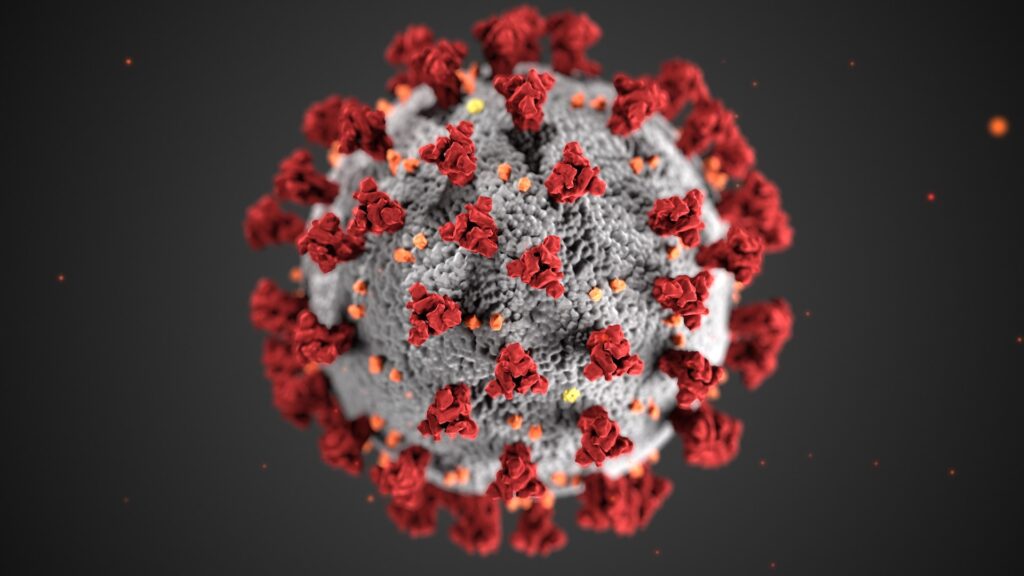Abstract
In the wake of Coronavirus (Covid 19), the global economy faced many challenges and stands victimised with recession in most of the economies including India. Covid 19 proved as the ‘Black Swan’ of global economy which has swallowed millions of human lives better not to be quantified. To cope up the impact of Covid 19, every citizen as consumer, producer, distributor, and trader has a role to play in the global economy to be revived from the recession caused by demand and supply distortions during covid (DC). It will be rele-vant to understand the functioning of the global economy before covid (BC), during covid (DC) and after covid (AC) by the economist to ponder over the solutions for the prob-lems. Being a votary for needonomics school of thought, I believe that every citizen must accept the responsibilities of needo-education for edu-cating youth not only employability and entre-preneurship but the basics of everything we need in our daily lives. We need to go beyond looking at government to find ways to develop the most valuable resources, the people. Needo-health : how to lead a healthy lifestyle, have a balanced diet, need of doing physi-cal activities and taking care of our thoughts and emotions. Needo-finances to earn a decent living by judicious spending. Nee-do-morality for living a disciplined life with empa-thy (not lip service of sympathy) towards all around us. calls for under-standing the principle of ‘Needonomics (economics of needs)”. We need resources which are cer-tainly limited and required to be spent judiciously confining to needs. The domain of ‘Needonomics’ as innovation is spiritual, nonviolent and ethical in nature based on the logo of Life Insurance Corpora-tion (LIC) of India ‘Yogak-shemam Vahamya-ham’(Your welfare is our responsibility). ABC of Needonomics with accu-racy, brevity and clarity have to be understood and adopted for the solu-tion of economic and non- economic problems in the society. Needonomics can say no to inward foreign direct investment (FDI) and takes care of the minimum needs of the weaker sections of the society (practising the art of giving with living in minimalism). It is believed by the researcher that the problems including violence, terrorism, exploitation and corrup-tion of all kinds are caused by ‘Greedonomics’ (eco-nomics of greed) and can be reduced if not removed by ‘Needonomics’ which deserve attention and adoption by all the stake-holders including politi-cians ( both in power and opposition) as an innova-tion of India. We need to research and rethink out of the box solutions for the problems of the econ-omy. We have to be com-passionate towards the weaker sections of the society requiring art of giving, possible only by adopting Needonomics. Economy can be people friendly and socially bene-ficial only if undertaken in accordance with NAW approach (Need, Afford-ability and Worth of the goods and services) of international marketing.
To become the desired human resources, the stake holders must become street SMART and SIMPLE with spiritual input flowing from the epics including Gita and Anu-Gita.
1.Introduction
In the wake of Coronavirus (Covid 19), the global economy faced many challenges and stands victimised with recession in most of the economies including India. Covid 19 proved as the ‘Black Swan’ of global economy which has swallowed millions of human lives better not to be quantified. To cope up the impact of Covid 19, every citizen as consumer, producer, distributor, and trader has a role to play in the global economy to be revived from the recession caused by demand and supply distortions during covid (DC). It will be rele-vant to understand the functioning of the global economy before covid (BC) and after covid (AC) by the economist to ponder over the solutions for the problems. Being a votary for needonomics school of thought, I believe that every citizen must accept the responsi-bilities of needo-educa-tion for educating youth not only employability and entrepreneurship but the basics of everything we need in our daily lives. We need to go beyond look-ing at government to find ways to develop the most valuable resources, the people.
Needo-health: how to lead a healthy lifestyle, have a balanced diet, need of doing physi-cal activities and taking care of our thoughts and emotions. Needo-finances to earn a decent living by judicious spending. Nee-do-morality for living a disciplined life with empa-thy (not lip service of sympathy) towards all around us. calls for under-standing the principle of ‘Needonomics (economics of needs)”. We need resources which are cer-tainly limited and required to be spent judiciously confining to needs. The domain of ‘Needonomics’ as innovation is spiritual, nonviolent and ethical in nature based on the logo of Life Insurance Corpora-tion (LIC) of India ‘Yogak-shemam Vahamya-ham’(Your welfare is our responsibility). ABC of Needonomics with accu-racy, brevity and clarity have to be understood and adopted for the solu-tion of economic and non- economic problems in the society . Needonomics is capable of saying no to inward foreign direct investment (FDI) and takes care of the mini-mum needs of the weaker sections of the society (practising the art of giving with living in mini-malism). It is believed by the researcher that the problems including violence, terrorism, exploitation and corrup-tion of all kinds are caused by ‘Greedonomics’ (economics of greed) and can be reduced if not removed by ‘Needonom-ics’ which deserve atten-tion and adoption by all the stakeholders includ-ing politicians ( both in power and opposition) as an innovation of India. We need to research and rethink out of the box solutions for the problems of the economy. We must be compassionate towards the weaker sec-tions of the society requir-ing art of giving, possible only by adopting Needon-omics. Economy can be people friendly and social-ly beneficial only if under-taken in accordance with NAW approach (Need, Affordability and Worth of the goods and services) of international marketing. To become the desired human resources, the stake holders must become street SMART and SIMPLE with spiritual input flowing from the epics including Gita and Anu-Gita.
To develop the study on the important issues of relevance it has been divided into various sec-tions including section 1 introduction, section 2 understanding of the global economy before covid (BC), during covid (DC) and after covid with various performance indicators, section 3 includes needonomics as a strategy and Section 4 conclusions and policy implications.
2.Understanding of the global economy
Although it is difficult to explain the economic damage from the global COVID-19 coronavirus pandemic, yet it has had severe negative impacts on the global economy. During 2020, the world’s collective gross domestic product (GDP) fell by 3.4 percent. To put this number in perspective, global GDP reached 84.54 trillion U.S. dollars in 2020 – meaning that a 3.4 per-cent drop in economic growth results in over two trillion U.S. dollars of lost economic output. Howev-er, the global economy quickly recovered from the initial shock, reaching positive growth levels again in 2021. That year, it reached 92.3 trillion U.S. dollars, and it is expected to continue to grow in the coming years, although Russia’s war in Ukraine since February 2022 and its impact on the world’s economy may hamper economic growth. To my mind, every sector of the global economy suffered from the covid crisis. The entire analysis of the impact of covid on global economy suffers from data limitations. It is very difficult to measure the impact without proper data not available which has to be generat-ed and required to be authenticated by various data collection agencies.

2.1 Strategy of Needonomics
As ‘Needonomist, I believe in the strategy of ‘Needo-nomics’ as the smooth path of survival and revival of the global economy including India. Strategy is essentially a choice- a choice of time, place and manner of attack on the problem at hand. The crisis of recession must be handled with care and convictions by the large breed of economists at all levels.
We must adopt common sense approach. I believe that common sense is to have sound judgment without specialized knowledge. One being street smart understands and assesses the situation and adopts common sense approach for under-standing, analysing, inter-preting and adopting the solutions of the problems at hand.
Needonomics requires actions suiting circum-stances as a com-mon-sense approach of ‘cut the coat according to the cloth’. It is an old proverb mostly before the ready-made dresses start-ed flooding the shopping mall. In those days, people bought the cloth accord-ing to the requisite mea-surement for stitching new dresses, including the coat. Even now many people do that. However, if the cloth purchased is cut more at one or two places than the required length and breadth, then there will be shortfall of material for other areas of the body, like arms, collar and pockets. Like the body and mind coordina-tion for any action of ours, these two, income and expenses, go together. It is all in one’s hand, mostly in middle class and even among higher income group of people, too. A father is the breadwinner of a family. He works and earns, so that he and his family members who depend on him for a living, find all the bare necessities and live peace-fully. At home, both the father and mother jointly discuss and plan the monthly expenditures so that it should not overlap the income. This proverb applies not only to individuals but also to business establishments. Of course, a company may raise a loan to expand or diversify its business. But it must do so judiciously; otherwise, it can even go bankrupt. Even the government of a nation has to keep in mind it’s total resources while spending. if it does not do so and goes on borrowing recklessly from banks and foreign countries, it could result in severe economic problems for the nation-als. The saying is of great practical value applying it in life makes one happy and contented.
Income can be compared to output, and expenses to input. If the input exceeds the output, then there is bound to be financial crunch every month. This will lead to debts and worries. And if the same situation per-sists, resulting in the accu-mulation of debts, it will shatter the peace in the family. So, it is the duty of the heads of the family to chalk out a strategy in such a way like cutting the cloth to the requisite measurement that both ends can be met with. It is not applicable to family alone, but applicable to any economy in the world including India. Now even the superpower USA also undergoes trials and tribulations, resulting in recession.
It is worth quoting a great saying by an anonymous writer, “They live in a beautiful little apartment overlooking the rent.” Though it sounds funny, it is true in many families who give utmost importance to luxury, a sort of face-saving attitude among their near and dear, by borrowing money and becoming debtors in the long run. One must have some comforts. There is no second opinion about it. But at the same time, it is the best policy to curtail unnecessary expenses.
To say goodbye to the ‘Cobra Effect’ of international debt, we should adopt needonomics which is ethical, nonviolent and spiritual in nature and says no to greed authenticating economic thoughts of Mahatma Gandhi , is based on the logo of Life Insurance Corporation (LIC )of India ‘Yogakshemam Vahamyaham’(Your welfare is our responsibility).ABC of Needonomics to be understood, analysed, interpreted and adopted for the solution of economic and non- economic problems in the global society as consumers, producers, distributors and traders. Altruism, Basic Needs, and Commitment for the society are the implications of needonomics We have to focus on the need-based priorities in choices as consumers.The joy of freedom cannot be found in the art of living for the livelihood but with the art of giving by adopting lifestyle of altruism (not me but you) with limited use of resources for the self. The excessive dependence on FDI can be reduced to a considerable extent by adopting needonomics. The call for stopping the use of foreign (Chinese ) goods can be successful only if we confine to needs only and say no to greed which falls in the domain of greedonomics (economics of greed ). Internationalization of Indianization is possible by adopting diplomacy of Glocalization (think globally and act locally) and sharing and caring of others.
To enhance the international stature of incredible India, we should stop war of words and win over the adversaries in neighbourhood with diplomacy.
To create capacity in the economy, we must build infrastructure which require investment and is dependent on domestic saving rate. This is possible with expenditure policy based on needonomics. One can increase the capacity of investing, saving and donating for public wellbeing only by confining to needs. There is no substitute of the control of expenditure and consumption for investment to enhance the capacities and capabilities.
I believe that ‘needonomics’ is necessary and sufficient for solving the economic and non-economic problems anywhere in the world including India.
Needonomics is required for saying no to most of the problems caused by Greedonomics (economics of greed) including violence, terrorism, exploitation, deprivation, discrimination, discontent, and corruption of all kinds prevailing in the society. Endless greed is the real menace facing the world today. To my mind, an economist who speaks and argues needonomics is known as Needonomist.
2.2 Strategy of Spiritually Guided Materialism (SGM)
To implement the strategy of ‘Needonomics’, I believe that strategy of spiritually guided materialism (SGM) flowing from LIC of India’s slogan in the logo ‘yogak-shemam vahamyaham’ in Sanskrit which loosely translates into English as “Your welfare is our responsibility” derived from sloka no 22 of chapter 9 of Bhagvad Gita “ananyāśh chintayanto mā˜ ye janāḥ paryupāsate teṣhā˜ nityābhiyuktānā˜ yoga-kṣhema˜ vahāmya-ham”. Meaning there by “There are those who always think of Me and engage in exclusive devotion to Me. To them, whose minds are always absorbed in Me, I provide what they need and preserve what they already possess”
Recession in the global economy including India needs proper diagnosis by the economists of all shades and creed with Gita based wise words of wisdom (www) to create conducive climate and work culture with honesty of purpose. It needs to be understood, analysed, and interpreted that spiritual-ism and materialism are complementary to each other and not substitutes. To mitigate the miseries of materialism, modern economics must consist of spiritualism which is necessary and sufficient for ethical behaviour of economic actors including consumers, producers, distributors, traders and above all policy makers and facilitators. Econo-mists have the unique responsibility towards the moral empowerment of all the actors in the econo-my.
2.3 Needo-consumption by Consumer as a hero of economics
I believe that a consumer as a hero of economics is always interested in a heroin (goods and services) and all those who pollute the relationship are called villains in the real drama in the market. Everyone is a consumer and is expected to behave in the market with rational behaviour which falls in the domain of consum er psychology.
Consumer psychology is the study of why and how people buy things in the market (online and offline). Every consumer should consume the goods and services as per the needs. It is unfortunate that leading economists of the world promote greed as the basis of economic growth, turning it into a “Greedon-omics”. Economics should be based on need, not on greed. It should be a “Needonomics”, and not a “Greedonomics”.
To boost immunity of the people as consumers, we have to adopt eclectic approach towards consumption of food by replacing the attitude of eating to live in comparison to the Americans who live to eat.
2.4 Stakeholders of Needonomics as Street SMART and SIMPLE Global Citizens
For revival of the economy, we need street smart citizenry as consumers, producers, distributors, and traders. A person is street smart with the attributes including simple, moral, action oriented, responsive and transparent (SMART) along with needonomics in the present economic scenario of materialism and consumerism.
We have to adopt SIMPLE model of empowerment consisting of six human development activities such as spiritual quotient (SQ) development, intuition development, mental level development, love oneself attitude development and emotional quotient (EQ) development. The synergy of these six aspects is essential requirement for us to emerge and realize our full potential. SQ development is essen-tial for the removal of stress and strain as well as social and economic health of the society. SQ development is necessary and sufficient for converting human beings into human capital. – the process of HRD. Spirituality is the science of soul- the spirit to know actuality with spiritual path.
To attain sustainable development, it is very important for us to develop intelligence to understand and accept situations, people and the changes happening around us through intuition which is possible only by believing, trusting and worshiping God (Bhakti).
A calm and contented mental clarity, kindness silence, self-control and purity of character constitute the austerity of the mind which is the need of the day for the mental level development.
An old and wise saying – ‘A sound mind lives in a sound body’ makes the justification for physical development. Having a sound body is very essential for the proper development of one’s life. If our body is not working properly it is diseased. We cannot perform our duty well and will be inefficient in our work, The growth and development of one’s life depends upon the development of physical powers. Physical develop-ment is possible by the kind of food we eat by understanding, analysing and adopting Bhagvad Gita in our life.
It is a love of oneself that urges to take those activities where we get pleasure and discard all those activities where pain is there. This calls for love oneself as true soul to perform the duties without fear.
There are three major components to improve EQ such as motivating oneself, motivating others and empathizing and not sympathizing with others, which clearly prescribe the functional areas which determine the EQ of a person. All these three components of EQ are related to the teachings of Bhagavad Gita to a great-er extent.
To understand, analyze, interpret and adopt dharma as spirituality, we need to read and reread Bhagvad Gita which is ism neutral religion free treatise on management. It promotes spiritual mathematics ( yog= summation) as 1+1=1. One soul added to God becomes one. Soul do not die and death rate is zero in the science of spirituality, than why fear death. As physical body everybody is to die and death rate is 100 percent, then why worries. To fulfil the desires, wants and demands of all kinds, one needs to unite with God. This is the only path to be followed for peace, progress and prosperity.
2 . 5 Strategy of Glocalization as alternative to Globalization
My perceptions about globalization in present times of covid created economic crisis is to understand, analyse and interpret globalization as internationalization of Indianization which I have been promoting since 1991.
To implement the vision of New India, we should be little diplomatic and use the wisdom for
‘Glocalization’ to promote Vasudhiava Kutumbakam (the world is one family) as the Indian ethos. We have to control our tongue and appetite of the war of words and agree to disagree respectfully. For determination of implementing the desired vision, we must accept needonomics as the key for self-reliance. It is pertinent to mention that self-reliance (Atamnirbhar) without the knowledge of the self as soul ( atma) is a distant dream and calls for imbibing human values of public wellbeing ( lokmanagal).
2.6 NAW Approach of Marketing
Economy can be people friendly and socially beneficial only if undertaken in accordance with NAW approach (Need, Affordability and Worth of the goods and services). The pertinent questions before the people ‘Do one Need the good or service, which has been so glamorously advertised? Is the good or service Affordable? Is the good or service Worth its price?’ The market should satisfy the essential needs of the people, create employment opportunities and be utilitarian. We must understand, analyse, interpret and adopt NAW approach for the goods and services. To create work culture, there is need of converting holiday culture in to holy-day culture. I firmly believe that the rate of progress in spiritualism is faster than the rate of progress in materialism.
Therefore, there is need of accepting spiritually guided materialism (SGM) strategy making a case for ‘needonomics’ which is nonviolent, ethical and spiritual (no to greed ‘greedonomics’) as a solution of various problems in any economy. Efficacy and esteem should be the belief to shape the economy which calls for zealous (not jealous) human resources with spiritual input. To make it happen we should adopt an evolutionary approach and should not expect miracles.

3. Conclusion
The global economy can be people friendly and socially beneficial only if undertaken in accordance with NAW approach (Need, Affordability and Worth of the goods and services). The pertinent questions before the people ‘Do one Need the good or service, which has been so glamorously advertised? Is the good or service Affordable? Is the good or service Worth its price?’ The market should satisfy the essential needs of the people for needo-consumption, create needo-employment opportunities and be needo-utilitarian. We must understand, analyse, interpret, and adopt NAW approach of international marketing for the goods and services which falls in the domain of needonomics. We must be alert, aware and awake of the ‘Cobra Effect’ which occurs when an attempted solution to a problem makes the problem worse, as a type of unintended consequence. We have to accept and adopt the principle of needonomics with mindfulness which can address the negativities of greed prevailing before and after covid. We must adopt SMART and SIMPLE models for the global citizens as stakeholders of the global economy to become street smart. We must fit into the dynamic business environment by adoptive attitude for the changed patterns in post pandemic era.
References:
- Professor Madan Mohan Goel: 221 blogs on ‘The Speaking Tree’ of Times of India www.speakingtree.in Needonomics School of Thought Facebook page by Madan Mohan Goel
- M. M. Goel ( 2022). “Gita based Needonomics for Cobra Effect of Debt”, FII News Letter https://ww-w.fii.org.in/July,2022
- M. M. Goel ( 2022). “Industrial Devel-opment in Haryana,” FII News Letter https://www.fii.org.in/-June,2022
- M. M. Goel ( 2022): NEEDO-RESEARCH FOR SWARNIM BHARAT (GLORIOUS INDIA) in 2047, FII News Letter https://www.fii.org.in/ May,2022
- M. M. Goel ( 2022): NYAY ADYAY KI SHURUAAT (Hindi article on Industrial Development in Haryana), Panchjanya June 12,2022 Vol 74 No1 ISSN 2349-2392,pp56-60
- M. M. Goel ( 2021): RATIONALE OF BAD BANK FOR NEEDO-BAKING IN INDIAN ECONOMY, jointly with Mayank Goel Varta Vol. XLII ,October 2021,No 2 Peer Reviewed Journal ISSN 09709177,pp 06-08
- M. M. Goel ( 2021): 25 YEARS PANCHYATI RAJ INSTITUTIONS REFORMS IN INDIA: NEED FOR SMART AND SIMPLE MODELS OF GOOD GOVERNANCE, published in The Grassroots Governance Journal Vol. XVIII (Numbers 1 & 2) and Vol. XIX (Numbers 1 & 2), 2020 and 2021(ISSN:0973-0257)
- M. M. Goel ( 2020): RATIONALE OF NEEDO-FINANCING : AN ANALYSIS of FISCAL POLICY OF HARYANA jointly with B.B.Tiwari Varta Vol. XLI ,April 2020,No 1 Peer Reviewed Journal ISSN 09709177,pp 05-15 M. M. Goel ( 2021): CHALLENGES IN NEEDO-EDUCATION FOR EQUALITY AND SUSTAINABLE SOCIETY, University News, Vol. 59 No 47 ISSN -0566-2257 November 22-28,2021 M. M. Goel ( 2021): AN ECONOMIC ANALYSIS OF PUBLIC EXPENDITURE IN MUNICIPALITIES AND PANCHAYATS OF HARYANA, jointly with Ishu Garg NAGARLOK ISSN 0027-7584VOL. LIII, Part 1, January-March 2021pp 16-37
- M. M. Goel ( 2020): REVIEW OF RESEARCH STUDIES ON INFLA-TION IN INDIA, jointly with Mayank Goel Nava Arthiki, ISSN 2277-2529 vol.28 no. 1- Dec.2020, pp 1 – 26
- M. M. Goel ( 2020): A VIEW ON HIGHER EDUCATION IN NEW EDUCATION POLICY 2020, The Rise.co.in, August 04 also on eduvoice.in
- M. M. Goel( 2019) :PERCEPTIONS ON DRAFT NATIONAL EDUCATION POLICY-2019, University News, Vol. 57 No 29 ISSN -0566-2257 July 22-28 M.M. Goel (2020): RELEVANCE OF NEEDONOMICS FOR REVIVAL OF GLOBAL ECONOMY, Dailyworld, July 09 also Needonomics for Revival of Global Economy, https://th-easianindependent.co.uk/ on July 07
- M.M. Goel (2020): COMMON SENSE APPROACH NEEDED FOR FACING COVID CREATED CHALLENGES, https://theasianindependent.co.uk/on May 30
- M.M. Goel ( 2012) : ECONOMICS OF HUMAN RESOURCE DEVELOPMENT IN INDIA
- M.M. Goel( 2013) : CHALLENGES AND RELEVANCE OF ECONOMICS AS QUEEN OF SOCIAL SCIENCES IN PRESENT SCENARIO, European Scientific Journal (ESJ) ISSN: 1857 -7881
DOI
https://doi.org/10.57259/GRJ4254
Research Objectives
To develop Needonomics School of Thought for street SMART (simple, moral, action-ori-ented, responsive and Transparent) stakeholders of the economy with spiritual input from Gita & Anu-Gita.
Bio

Professor Dr Madan Mohan Goel is Founder Needonomics School of Thought, experienced Vice-Chancellor at Starex University, Gurugram, Jagannath University Jaipur, RGNIYD, Sriperumbudur, Pro Vice-Chancellor VKSU Ara & Superannuated Professor at Kurukshetra University Kurukshetra.


